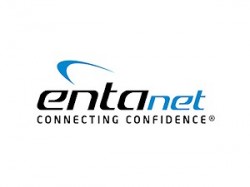Entanet Warns – A Broadband Speed Guarantee Would Mean Higher Prices

UK ISP Entanet has likened consumer magazine Which? to the fictional and accident prone hotel owner, Basil Fawlty, after the organisation last week called for ISPs to offer a Broadband Speed Guarantee to their customers (here) and refund users for losses of service.
Paul Heritage-Redpath, Entanet’s Product Manager, points out that a customer’s connection speed can be impacted by a variety of factors (e.g. poor home wiring, slow wifi links, long copper lines, line faults etc.) and that many of those are not controlled by the Internet provider (i.e. BTOpenreach or the subscribers own realm).
Advertisement
Similarly Entanet notes that nearly every single ISP will already give consumers a prior estimate of their expected speed and Ofcom’s rules also include measures to tackle problems with this aspect, which includes the ability to leave your contract (without penalty) if the issue cannot be resolved (i.e. within the first 3 months). But a true “guarantee” is going to cost you.
Paul Heritage-Redpath said:
“Anyone can have a line with a guaranteed speed on it today. It involves laying fibre, a technology which uses light, something which has negligible deterioration with distance and which is not affected by weather. Digging holes for it costs much more than consumers are willing or able to pay though, which is why only businesses currently enjoy guaranteed speeds. Broadband products are in their very nature contended services, shared by others to keep the cost low.”
The provider also warned that ISPs would need to raise their prices if Which?’s call to allow refunds and greater freedom to exit contracts were adopted. “No sane business would or could bear the cost of the activation and cease fees we pay the incumbent infrastructure provider for supplying broadband. So the price of a broadband package upfront would go up by something in the region of £75 to cover those costs. This is probably not the result Which? intended,” said Heritage-Redpath.
Finally Entanet’s product manager points to the issue of BTOpenreach, which must take the bulk of responsibility whenever things go wrong with the underlying infrastructure. The problem with pushing strict requirements on to ISPs is that Openreach would not face the same pressure and could carry on as normal, while the ISP is penalised for something that may be out of its control.
Paul Heritage-Redpath added:
“We understand the vital importance of connectivity for businesses and consumers to thrive in this country. Broadband should be as important a part of our national infrastructure as roads. But please, Which?, take a leaf from Stephen Covey and “Seek First to Understand, Then to Be Understood”. ISPs make the best of the infrastructure we have by providing a human interface between the public and Openreach. But by focussing on the middleman not the provider in this chain, you run the risk of looking like Basil Fawlty, thrashing his car because it won’t go where he wants it to.”
It’s interesting to note that the calls by Which? were welcomed by operators, such as Virgin Media, which don’t just sell a service but also have control of their own underlying network. Meanwhile ISPs, specifically those which are dependent upon Openreach’s network, were perhaps understandably a little concerned.
Advertisement
Meanwhile it should be noted that Ofcom are currently putting pressure on Openreach to improve their quality of service and repair times (here), although only time will tell how much of a difference that will really make.
As usual broadband, just like politics, remains a much more complicated and generally murkier world than you might first think.
Mark is a professional technology writer, IT consultant and computer engineer from Dorset (England), he also founded ISPreview in 1999 and enjoys analysing the latest telecoms and broadband developments. Find me on X (Twitter), Mastodon, Facebook, BlueSky, Threads.net and Linkedin.
« BT Promise to Fix VPN Blocking Bug in Home Hub 3A Broadband Router






















































Comments are closed